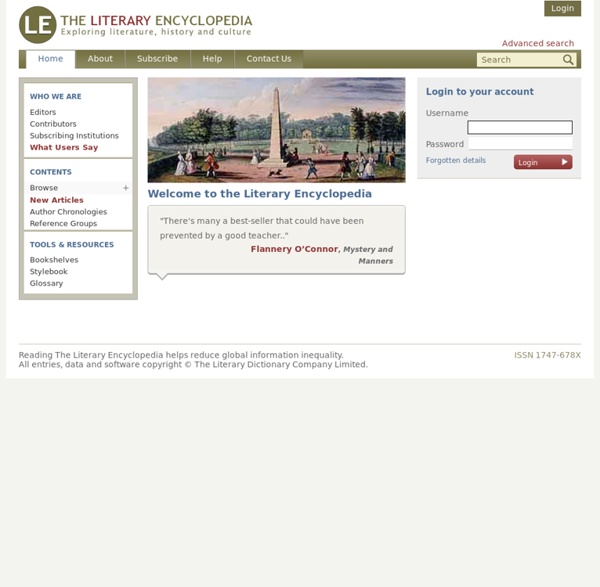



Table of Contents abduction (Igor Douven) Abelard [Abailard], Peter (Peter King) Abhidharma (Noa Ronkin) abilities (John Maier) Abner of Burgos (Shalom Sadik) Abrabanel, Judah (Aaron Hughes) abstract objects (Gideon Rosen) accidental properties — see essential vs. accidental properties action (George Wilson and Samuel Shpall) action-based theories of perception (Robert Briscoe and Rick Grush) action at a distance — see quantum mechanics: action at a distance in actualism (Christopher Menzel) adaptationism (Steven Hecht Orzack and Patrick Forber) Addams, Jane (Maurice Hamington) Adorno, Theodor W. (Lambert Zuidervaart) advance directives (Agnieszka Jaworska) Aegidius Romanus — see Giles of Rome Aenesidemus — see skepticism: ancient aesthetic, concept of the (James Shelley) aesthetics aesthetics of the everyday (Yuriko Saito) affirmative action (Robert Fullinwider) Africana Philosophy (Lucius T. Outlaw Jr.) B [jump to top] C [jump to top] D [jump to top] Damian, Peter (Toivo J.
Oxford Dictionary of Word Origins "A treasure (from the Greek ‘thesauros’, treasure, store or storehouse) trove (past participle of an Anglo-Norman verb meaning ‘to find’) of verbal wonders" – William Hartston, Daily Express Combining both accessibility and authority, The Oxford Dictionary of Word Origins describes the origins and development of over 3,000 words and phrases in the English language. The book draws on Oxford's unrivalled dictionary research programme and language monitoring, and relates the fascinating stories behind many of our most curious terms and expressions in order to offer the reader a much more explicit account than can be found in a general English dictionary. Organized A-Z, the entries include first known use along with examples that illustrate the many faces of the particular word or phrase, from ‘handsome’ to ‘bachelor’ and ‘cute’ to ‘baby’, from ‘pagan’ to ‘palaver’ and ‘toff’ to ‘torpedo’. Bibliographic Information
MyiLibrary Encyclopedia Britannica Word roots: The web's largest root words and prefix directory The roots of online casinos can be traced back to the late 20th century when advancements in internet technology paved the way for the emergence of virtual gambling platforms. Here's a brief overview of the key milestones and developments in the history of online casinos: Antigua and Barbuda: In 1994, the Caribbean nation of Antigua and Barbuda passed the Free Trade & Processing Act, which allowed for the licensing of online casinos. This legislation laid the foundation for the legal operation of internet-based gambling businesses. The First Online Casino: The first online casino, "Loonie Online Casinos" was launched in 1994 by Microgaming, a software development company based in the Isle of Man. The Gaming Club offered a small selection of casino games and quickly gained popularity among early internet users. Rapid Expansion: Throughout the late 1990s and early 2000s, the online casino industry experienced rapid growth, with numerous new operators entering the market.
Web of Science (knowledge) WEB OF Science Your ideal single research destination to explore the citation universe across subjects and around the world. Web of Science provides you access to the most reliable, integrated, multidisciplinary research connected through linked content citation metrics from multiple sources within a single interface. And since Web of Science adheres to a strict evaluation process, you can be assured only the most influential, relevant, and credible information is included - allowing you to uncover your next big idea faster. Web of Science connects the entire search and discover process through: Premier Multidisciplinary Content Emerging Trends Subject Specific Content Regional Content Research Data Analysis Tools Learn more about Web of Science Take advantage of many great features when you register. Learn more about the benefits of registering for an account
Encyclopedia of Earth Word Information - an English dictionary about English vocabulary words and etymologies derived primarily from Latin and Greek word origins WorldTradeLaw.net - The Online Source for World Trade Law Stanford Encyclopedia of Philosophy